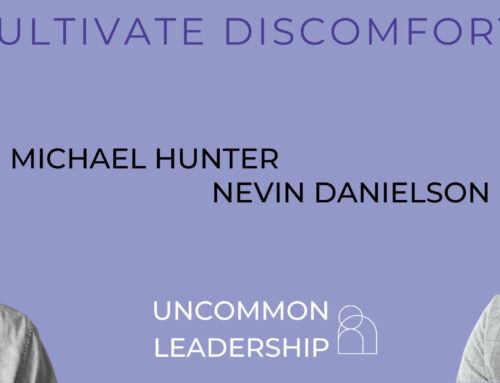You can do better than “my door is always open.”
To be an effective leader, you must do better.
The boldness to walk through that open door with initiative, confidence and purpose is extremely hard for many of your colleagues.
For those that find it hard – or uncomfortable – or risky – or embarrassing – it’s far too easy for them to elect not to make that trip.
You’re losing their insight, their ideas and a valuable growth moment. “My door is always open,” is, at best, saying you’ll be patient and gentle if they interupt. Is that your best effort to access their contribution?
When looking at that open door, your team is asking such things as,
Are they too busy for this?
Does this merit an interruption?
Does this make me look incompetent?
Is this old news to them?
Shouldn’t I just “suck it up?”
What if they question something I haven’t thought through?
You may see that list and recall all the times that you overcame those same doubts yourself. You’re likely now the wise and skilled leader because of your ability to push through those questions.
Now, we might want others to navigate that challenge and summon their own personal perseverance, as well.
Why?
I suppose you could say it forges the kind of contributors you desire for your organization. That kind of resilient ambition is the formula for organization success. I’ll counter, however, that maybe we shouldn’t need that kind of fortitude.
What if we create an environment where we get contribution because it is welcome, celebrated and supported?
Let’s not limit ourselves to the contributions of those that are skilled at pushing through the self-doubt and sense of risk.
By the way, care to guess which of our colleagues find more success in the “overcoming self-doubt and sense of risk” game? People with privilege. “My door is always open” disproportionately limits the diverse voices we are so keen to hear.
Please, keep your door open. Also, engage with your team and get more explicit about cultivating an environment where everyone can walk through it. Here are some ideas.
| To address the unspoken | Initiate a conversation |
|---|---|
| Are they too busy for this? | What else should be considered for prioritization? |
| Does this merit an interruption? | When we have new information or an idea that might be worth exploring, how would we like to share it? |
| Does this make me look incompetent? | If this organization fails to meet our objective, what do you think will have been the reason? |
| Is this old news to them? | How can we stay aligned and coordinated? |
| Shouldn’t I just “suck it up?” | What inconveniences or inefficiencies are you dealing with? |
| What if they question something I haven’t thought through? | How should we help each other when we have impartial or “half-baked” ideas? |
In short, please consider asking questions, not just being available. Effective questions show vulnerability, demonstrate that we don’t have it all figured out and validate the need for participation and contribution from everyone.




